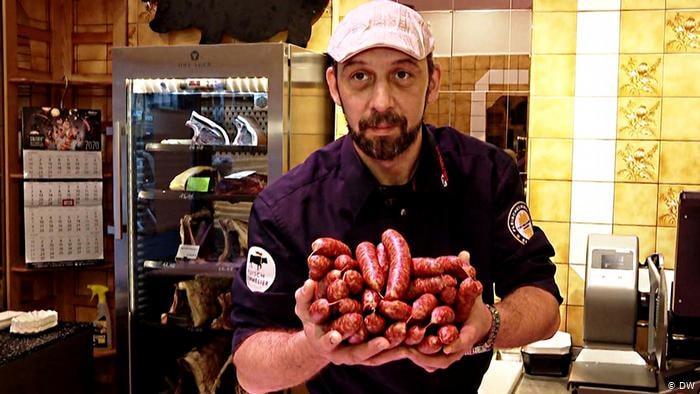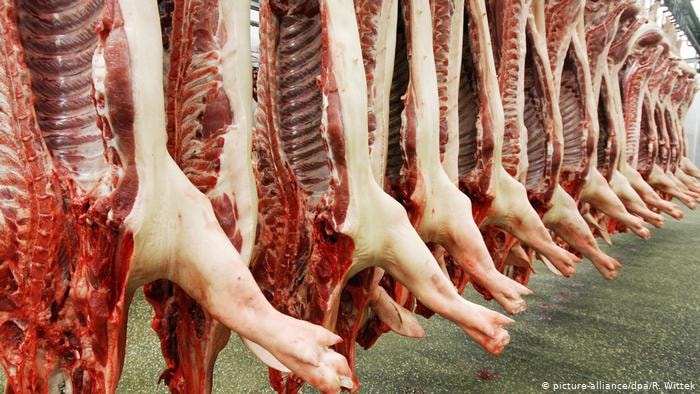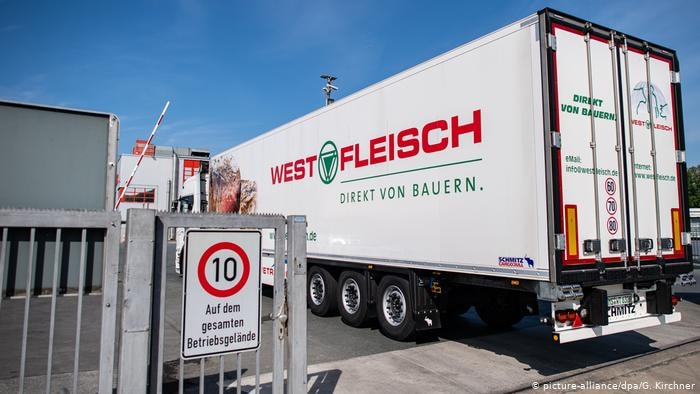Germany: Covid-19 pandemic exposes meat industry scandal
(Baonghean) - The epidemic caused by the new strain of Corona virus (Covid-19) raging in Europe in recent days has invisibly exposed the "dark corners" of the meat industry in the leading country of the old continent - Germany. The reality of foreign workers being forced to endure inhumane living conditions so that German people can use cheap meat is causing much controversy, urging politicians not to continue to ignore what is happening at slaughterhouses in this country.
The Blame Game
We are often reminded that “there is no such thing as a free lunch.” In life, everything comes with a price, and this is certainly true when it comes to the cheap meat that consumers in wealthy, industrialized countries often enjoy.
According to DW, after hundreds of Eastern European workers at the Westfleisch slaughterhouse in North Rhine-Westphalia, Germany tested positive for Covid-19, it became clear that these workers were paying the price, sometimes with their lives, for cheap meat on the market. Of course, Westfleisch - the third largest meat processing company in Germany - claimed responsibility for its workers. But if you dig deeper, you will see that the company actually has a very small number of employees. Meanwhile, the majority of workers in this industry are hired by subcontractors, and they mainly recruit people from Romania, Bulgaria and Poland.
 |
| Germans consume millions of animals every year. Photo: DW |
The German meat industry exploits this loophole to cut costs. And on paper, companies like Westfleisch are not responsible for the inhumane living conditions experienced by hundreds of foreign workers in their slaughterhouses. Subcontractors, in turn, argue that the government should set and enforce basic health and labor standards. But in Germany, this is the prerogative of city and state governments. The whole situation has led to a blame game, with no one willing to step in. Even the Labor Minister of North Rhine-Westphalia, who has expressed displeasure at the meat industry’s “blind eye” trend, has not made any moves himself. Likewise, no legislator has spoken out or taken any action on the issue.
For years, it has been an open secret that workers from Eastern and Southern Europe have been toiling for piece rates in German slaughterhouses, languishing and becoming sickly in squalor and deprivation. Westfleisch management knows this, as do subcontractors, local officials and police, Coesfeld district administrators, North Rhine-Westphalia state authorities, and even federal lawmakers. Coesfeld residents know this, and so do residents of neighboring towns. After all, they often encounter slaughterhouse workers at the local supermarket or bakery. And until recently, hardly anyone paid any attention to the situation, many arguing that these workers came to Germany voluntarily, earning more money than they could at home.
 |
| Pork hangs in a slaughterhouse in Mannheim, Germany. Photo: DPA |
Pay a high price for cheap meat
However, the Covid-19 pandemic has changed everything. If 3-4 workers are packed into a single room, the risk of an outbreak is very high. And this risk of course poses a direct threat to the surrounding communities. Assuming there was no coronavirus outbreak, one could argue that most Germans would continue to ignore the miserable living conditions of these workers.
Back in reality, the scandal that has just been revealed in Germany has unintended global consequences. The German meat industry is so competitive that it exports even to China. German companies can offer products at cheaper prices than global competitors. But to keep prices low, companies also have to pressure farmers to cut costs. As a result, farmers keep pigs in tiny cages and inject them with antibiotics to keep them from getting sick. The pigs are fed cheap soybeans or corn imported from South America, where many rainforests have been cut down to make way for crops. This in turn harms the Earth’s climate and drives up land costs.
So in the end, everyone is paying a high price for cheap meat. Animals raised on antibiotics mean humans are becoming resistant to some of the drugs, and the meat industry pollutes groundwater by dumping so much animal waste into fields…
 |
| North Rhine-Westphalia state authorities have ordered the Westfleisch Meat Processing Plant to temporarily close. Photo: DPA |
German industrial leaders and politicians have long known these consequences. It is widely understood that the only way to change the situation is to switch to smaller, decentralized enterprises that produce high-quality meat in smaller quantities. This will probably reduce their revenues, as they will not be able to afford to export pork to the Chinese market. And along with that, this solution will certainly increase meat prices in Germany's domestic market. However, surveys show that the majority of Germans would support a transition to a more sustainable form of agriculture. What Europe's leading economy needs on this journey is determination, courage and leadership to lead it there.

